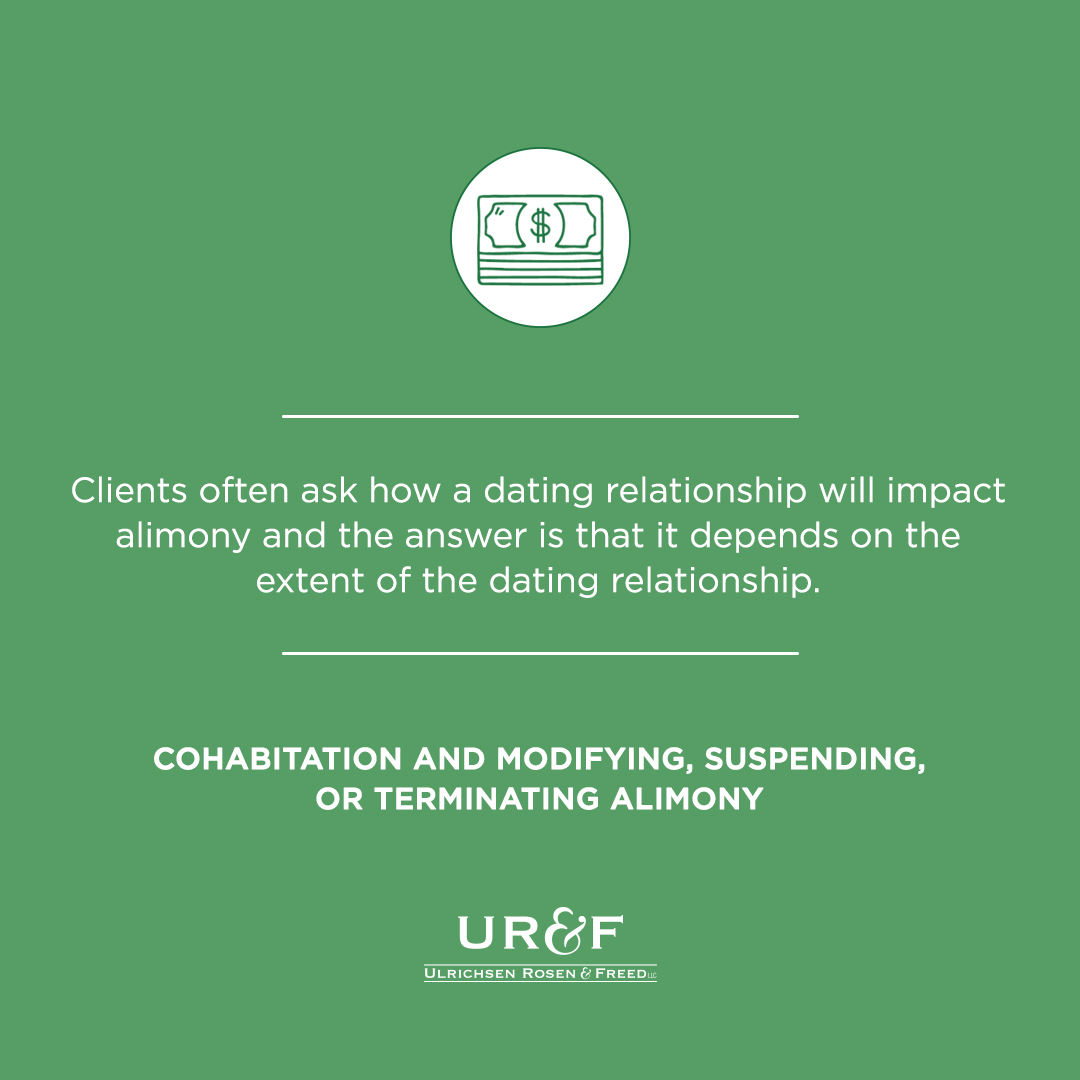Cohabitation and Modifying, Suspending, or Terminating Alimony
Clients often ask how a dating relationship will impact alimony and the answer is that it depends on the extent of the dating relationship. Dating alone is not a basis to modify alimony obligations. However, if a party receiving alimony is “cohabiting” this is a basis to modify, suspend or terminate an alimony obligation.
On September 10, 2014, the New Jersey Legislature amended the alimony statute, N.J.S.A. 2A:34-23, to more broadly define cohabitation and outline the basis to suspend or terminate alimony. However, the amendments to the statute were not retroactive. As such, there are two different standards for defining cohabitation with respect to alimony obligations established before and after the amendments on September 10, 2014.
In both instances, cohabitation is defined as “a mutually supportive, intimate personal relationship in which a couple has undertaken duties and privileges that are commonly associated with marriage.” However, for alimony obligations established prior to September 10, 2014, the parties must reside together to establish a prima facie showing of cohabitation.
For alimony obligations established after September 10, 2014 to the parties do not need to reside together establish a prima facie showing of cohabitation.
In both instances, when assessing whether cohabitation is occurring, a court will consider the following: (1) Intertwined finances such as joint bank account and other joint holdings or liabilities, (2) Sharing or joint responsibility for living expenses; (3) Recognition of the relationship in the couple’s social and family circle; (4) Living together, the frequency of contact, the duration of the relationship, and other indicators of mutually supportive intimate personal relationship; (5) Sharing household chores; (6) Whether the recipient of alimony has received an enforceable promise of support from another person; (7) and all other relevant evidence.
To address the statutory factors, a party will often utilize the services of a private investigator and information obtained via social media to identify whether or not a party is involved in a relationship that is akin to a marriage.
With the need for the moving party to first establish a prima facie case prior to their right to obtain formal discovery (see our case summary discussion on Landau v Landau), the devil is in the details regarding the preliminary information presented to the court. If you are considering an application to modify alimony based on cohabitation, the length of time in which you can establish such evidence and the variety of the information linked to the statutory factors is critical to any application.
For questions regarding alimony modifications, cohabitation or any other family law related issue, please contact the attorneys of Ulrichsen Rosen & Freed LLC. Our firm is focused exclusively on the practice of family law and serves clients throughout New Jersey including clients residing in Mercer County, Somerset County, Hunterdon County, Burlington County and Middlesex County.


